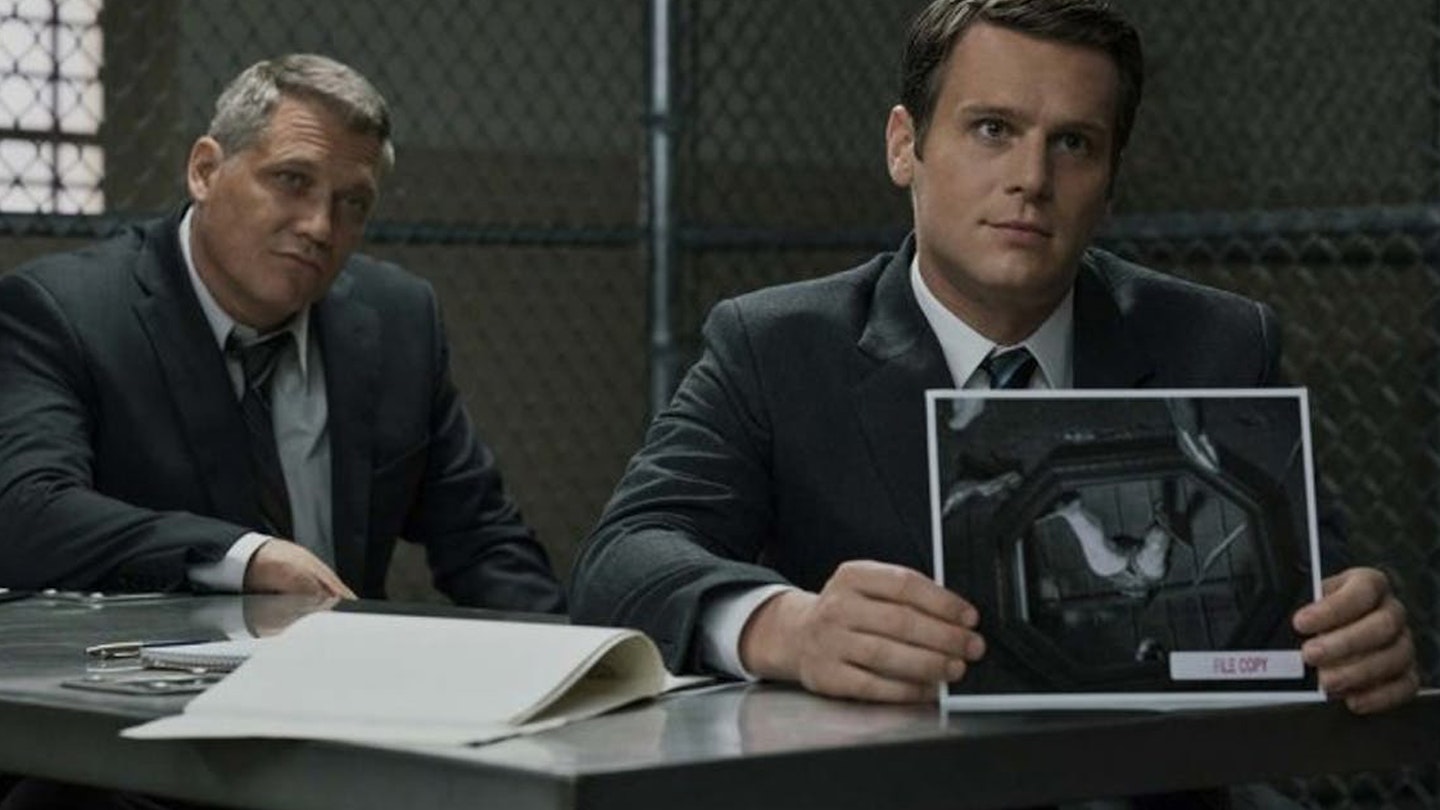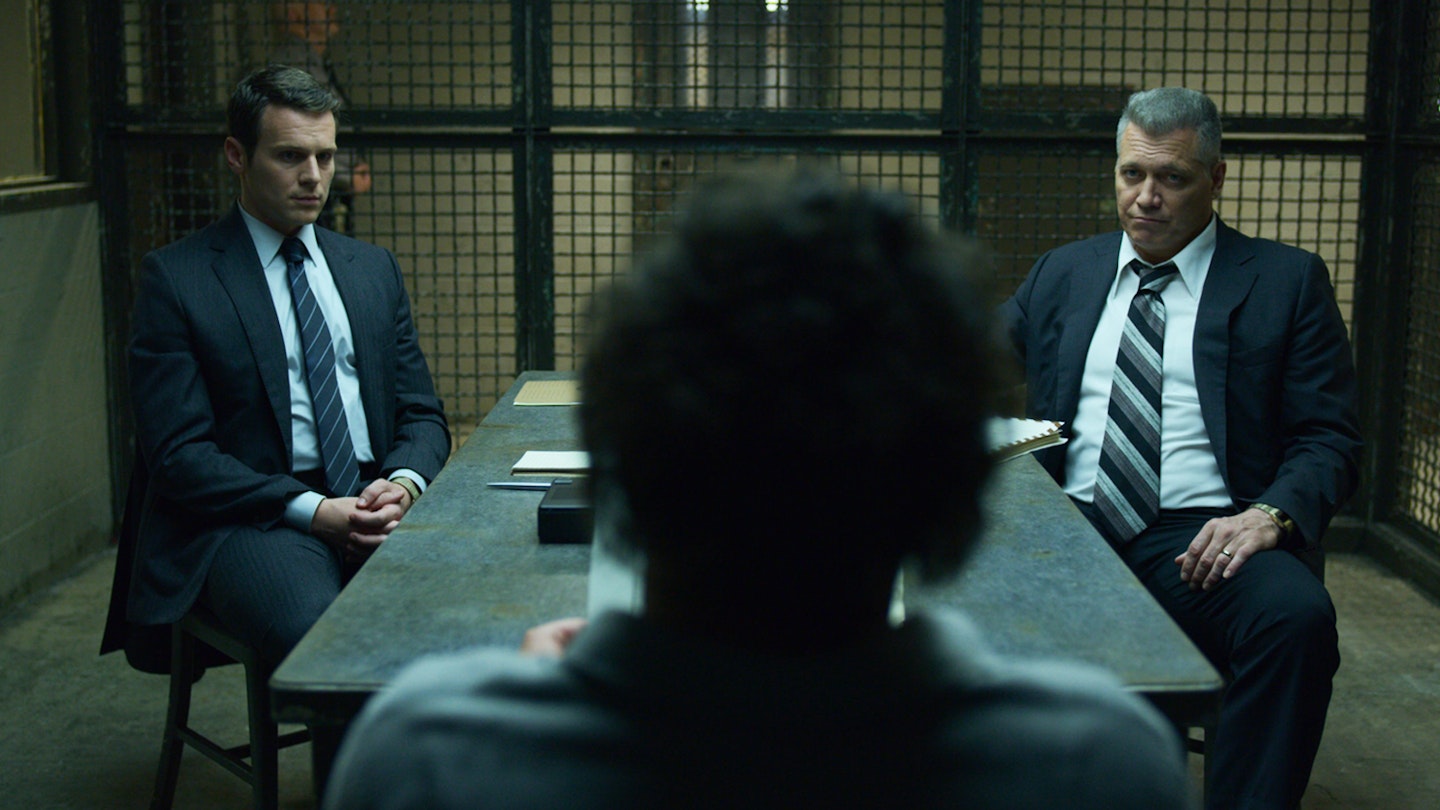It took a while to get going, but the first season of Netflix’s Mindhunter ultimately blossomed into one of 2017’s best shows, carving out a unique space for itself within the crowded crime drama genre. In some ways the inevitable second instalment is the inverse of its predecessor, starting off strong before losing a bit of steam and a lot of the core dynamic that helps make the show special as it nears the finish line. But at its best it still makes for fascinating and compelling TV, and that’s exactly the case for the majority of the nine-episode season.

Picking up days after the conclusion of Season 1, the first hour quickly sets up the new status quo; new FBI boss Ted Gunn (Michael Cerveris) wants to shift the BSU from “cold case call to first call” and gives the team more resources to hasten their progress. But while he appreciates Ford’s intuitiveness, Gunn also charges Tench and Carr with keeping their colleague under control.
Groff gives his character an earnestness that helps alleviate some of his know-it-all tendencies.
That’s a task that turns out to be particularly difficult for Tench, who gets a lot more focus this season. A murder involving his adopted son means that his time is split between his BSU work and taking care of his family, and the strain it puts on all areas of his life gradually becomes harder to bear. The central question of whether we can truly know someone’s motives is not only applicable to serial killers this time round, and the answers it could yield are devastating. Thankfully the more difficult things get for his character the more impressive McCallany becomes, tapping into Tench’s doubt and frustration with impressive subtlety as the season progresses. It’s a brilliant performance, and when it comes time to discuss awards his name should be in the conversation.
As for Ford, you’d be forgiven for thinking that his encounter with Ed Kemper (Cameron Britton) at the end of Season 1 taught him a lesson about establishing boundaries with his subjects. Instead of having to deal with panic attacks – a subplot that is oddly abandoned a few episodes in – he repeatedly finds himself coming up against red tape and politics. With Atlanta’s first black mayor desperate to keep the racial tensions quiet and facing mounting pressure from both the media and his bosses, it’s a struggle for Holden to implement his ideas. That this isn’t frustrating to watch is down to Groff, who gives his character an earnestness that helps alleviate some of his know-it-all tendencies.
It’s disappointing, then, that the only member of the core trio who feels under-utilised is the female lead. Torv does an admirable job with the material she’s given for Carr, but a rushed romantic subplot quickly fizzles out and once the focus shifts to Atlanta, she’s barely on screen. The one upside to her absence is we get more of the likeable FBI agent Jim Barney (Albert Jones), and his black perspective offers a vital counterpoint to Ford’s racial profiling.
It also almost goes without saying that on a technical level, Mindhunter continues to be above reproach. David Fincher only directs the first three episodes, but both Andrew Dominik and Carl Franklin ensure that the handsome cinematography and meticulous attention to detail is maintained throughout. Jason Hill’s eerie score further adds to the dark, chilling ambience.
